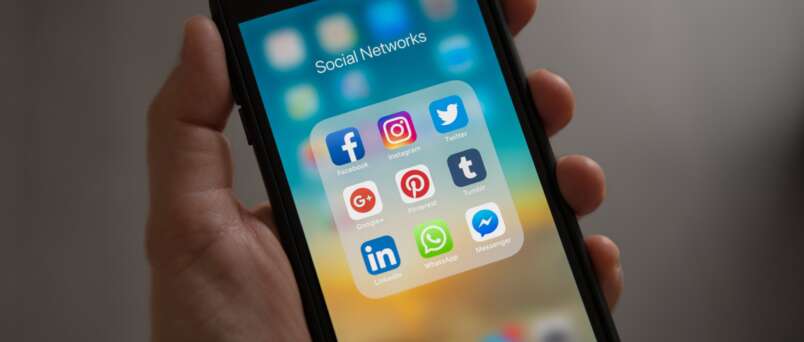Social media has become a dominant part of our daily lives, and for that reason, it’s important to understand and analyze how social media affects mental health. We use social media for mostly everything—from our source of news, staying in touch with friends and family, to entertainment. What many may not realize, however, is the social media influence on behavior and other psychological instances that greatly varies between users.

Social Media Anxiety and Its Role Among Other Conditions
Social media anxiety is a very real thing, and it plays a huge part especially in the lives of teenagers. We all know the main goal of social media is to connect us with others via the web, and allow us to gain insights into just about anything we want. This ease of use does, however, lead to disagreements, rooted opinions, and vitriol. As a result, social media can greatly impact and bring about a variety of mental health conditions, such as anxiety, depression, and self-esteem issues.
Pros and Cons of Social Media on Mental Health
Some of the negative effects of social media on teenagers and adults include:
- Self-esteem Issues – This has become a growing concern among social media users. Apps like Instagram, FaceBook, and Twitter are built upon the idea of sharing content about ourselves, be it pictures, videos, or text posts. Even when this content seems to be manipulated or represents someone else’s highlight reel in a way that doesn’t match our own, it tends to cause feelings of inadequacy, envy, and dissatisfaction.
- FOMO – Fear of missing out is another mental health phenomenon coinciding with social media. We often see images or videos of people engaging in activities that we wish we were able to, or living a life that we desire but can’t obtain. Jealousy to any extent may bring on these feelings of FOMO, and can cause users to cling to their devices for updates and new content to engage with.
- Social Behavior – Have you ever been out with friends and one of them can’t get off their phone? Social media has drastically changed how we interact on a social level. It has affected our ability to focus and live in the moment, and many now find themselves quickly bored in a situation and impulsively leaning toward their phone for satisfaction.
Social media does however bring about some positives for users. These positives include things such as:
- Supporting Connections – We are now able to connect with others in a moment’s notice, even if they live across the world. Especially during the pandemic, we were able to speak with the ones we love in a virtual setting, and that’s a reason to celebrate.
- Boosting Self-esteem – Yes, social media can both benefit and hurt our self-esteem, and it really comes down to the user themselves. But when something we post is received positively, it without a doubt makes us feel good to an extent. Social media can also help those who struggle with social anxiety, giving them a voice when they otherwise wouldn’t be able to. It activates our brain’s reward center, releasing dopamine that gives people a good experience.
How to Overcome the Social Media Negatives
Those experiencing negative setbacks brought on by social media may have varying reasons behind these feelings. And since there’s no set way to use social media, it’s important to analyze our own self when using these platforms, and understanding when these negatives arise.
Individuals can positively make their use of social media by:
- Turning off devices in certain situations, like while driving, at work, or at dinner
- Leaving devices out of reach when trying to sleep
- Turning off notifications to avoid excessive callbacks to these devices
- Limiting social media use to a computer rather than a cell phone
Retreat Behavioral Health has been a trusted source for comprehensive mental health and substance use services, providing treatment options catered to many of these associated conditions. Learn more about our resources, or contact us today if treatment seems the right move to make.
